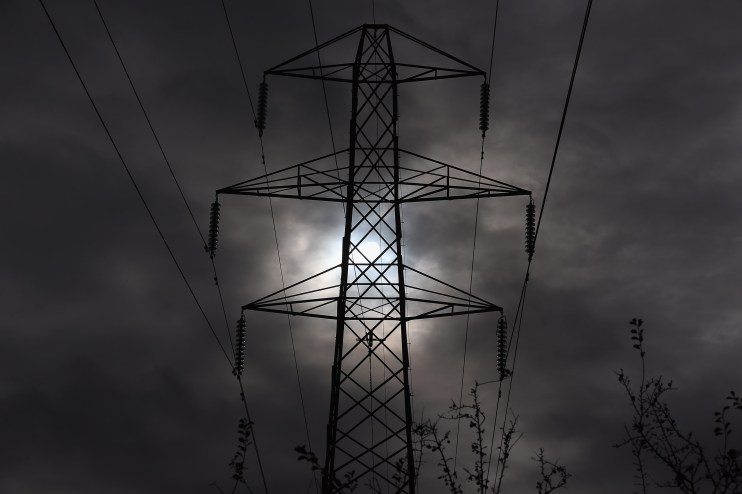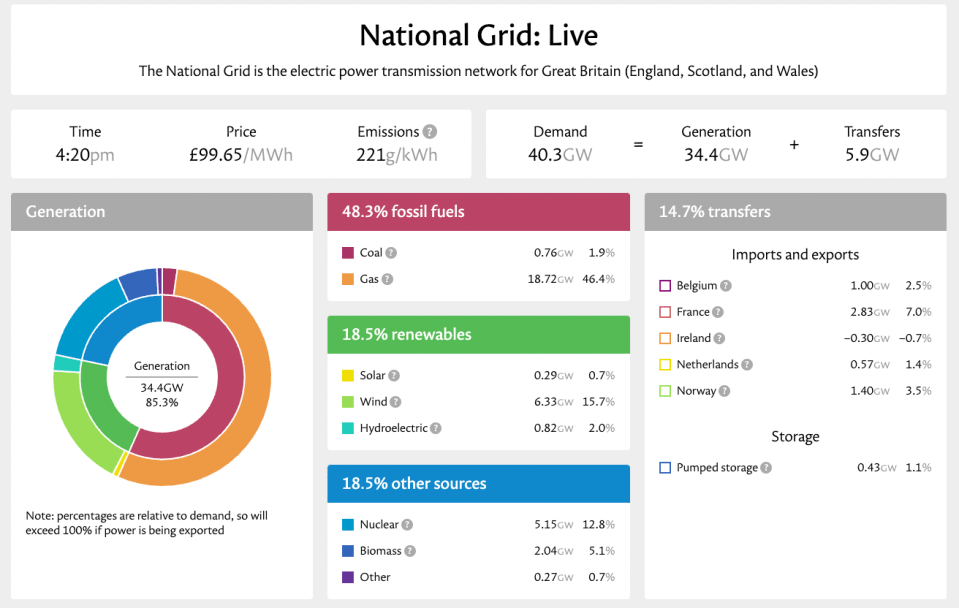National Grid triggers household energy saving plan as cold snap bites

Households will be paid to cut their energy use tomorrow evening for the first time as a precaution, as frosty weather and expectations of low winds put pressure on the country’s creaking energy grid.
National Grid’s electricity system operator (NGESO) has opted to trigger its demand flexibility service between 5pm and 6pm tomorrow, as an early measure to ease pressure on the UK’s energy network.
This will mean energy firms will tell selected households to reduce their consumption levels by cutting back on using power-intensive products.
It has notified energy providers it needs to find savings of 659MW to maintain its preferred energy security margins.
It has also turned to coal to meet the UK’s energy needs, and has requested three coal power units – owned by Drax and EDF – are warmed up to boost electricity production in case of a potential supply crunch.
This follows the Met issuing a weather warning of icy conditions and poor visibility, with renewables such as wind and solar dropping to less than 20 per cent of the country’s energy mix.
Instead, gas is meeting 47 per cent of the UK’s energy needs, with the country also relying on imports from the continent for nearly 15 per cent of its supplies, according to the latest tracking data.
National Grid: Don’t worry about blackouts
Despite the latest developments, National Grid insisted there is no risk of blackouts tomorrow.
A NGESO spokesperson said: “Our forecasts show electricity supply margins are expected to be tighter than normal on Monday evening. We have instructed coal-fired power units to be available to increase electricity supplies should it be needed tomorrow evening.
“We are also activating a live demand flexibility service event between 5-6pm tomorrow. This does not mean electricity supplies are at risk and people should not be worried. These are precautionary measures to maintain the buffer of spare capacity we need.”
National Grid has negotiated winter contingency contracts with the remnants of the UK’s coal power fleet – extending the lifespan of multiple plants as it grapples with soaring gas prices and a Russian squeeze on European supplies in the coldest months of the year when demand is at its peak.
It has managed to stave off blackouts so far, including its worst-case scenario in its winter outlook published last year of rolling power cuts in January.
However, National Grid did trigger and row back early stage emergency measures on two separate occasions in November.
The latest announcement will raise concerns of further challenges for the grid as it pushes to meet rising energy demand amid increasing cold winter weather.
